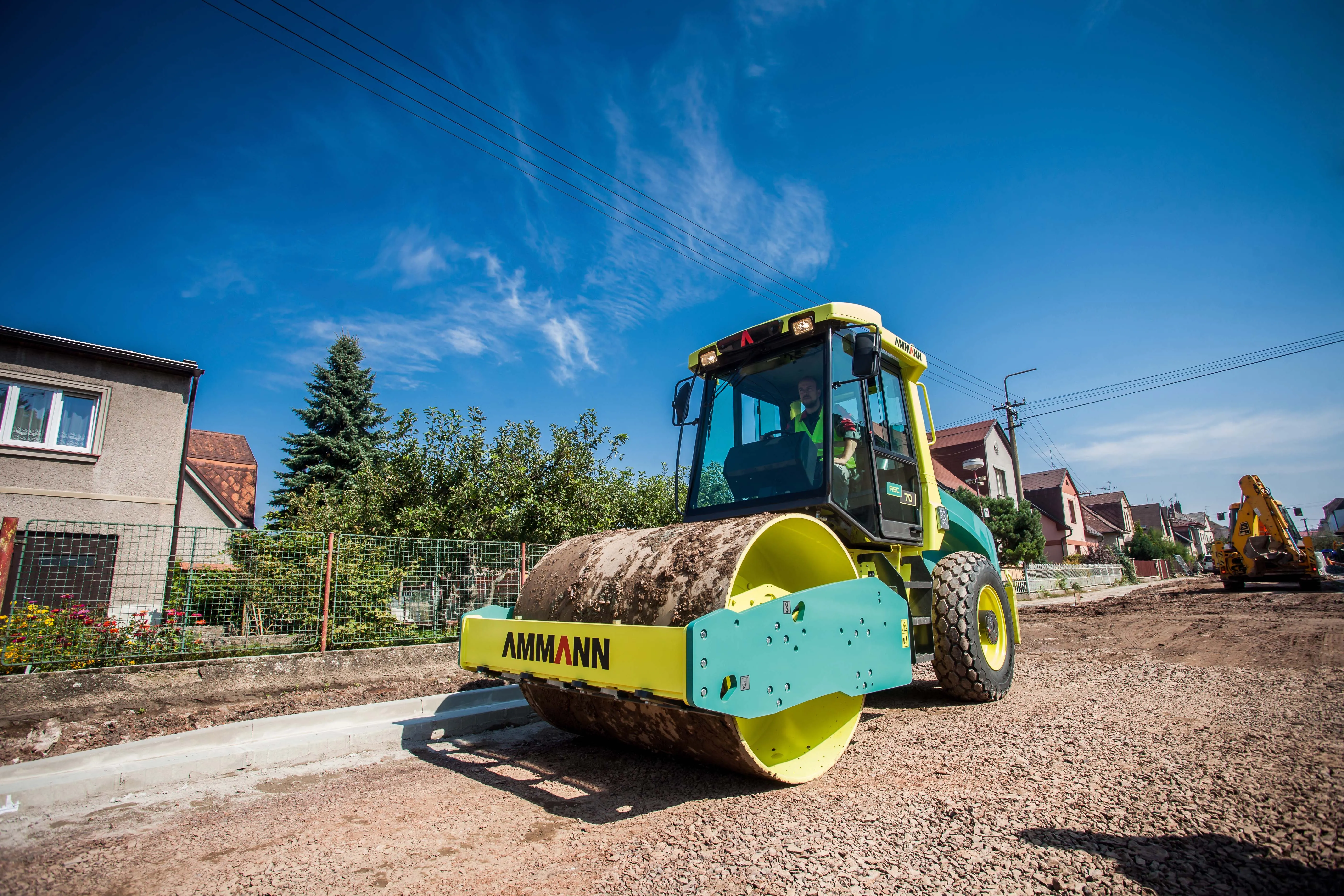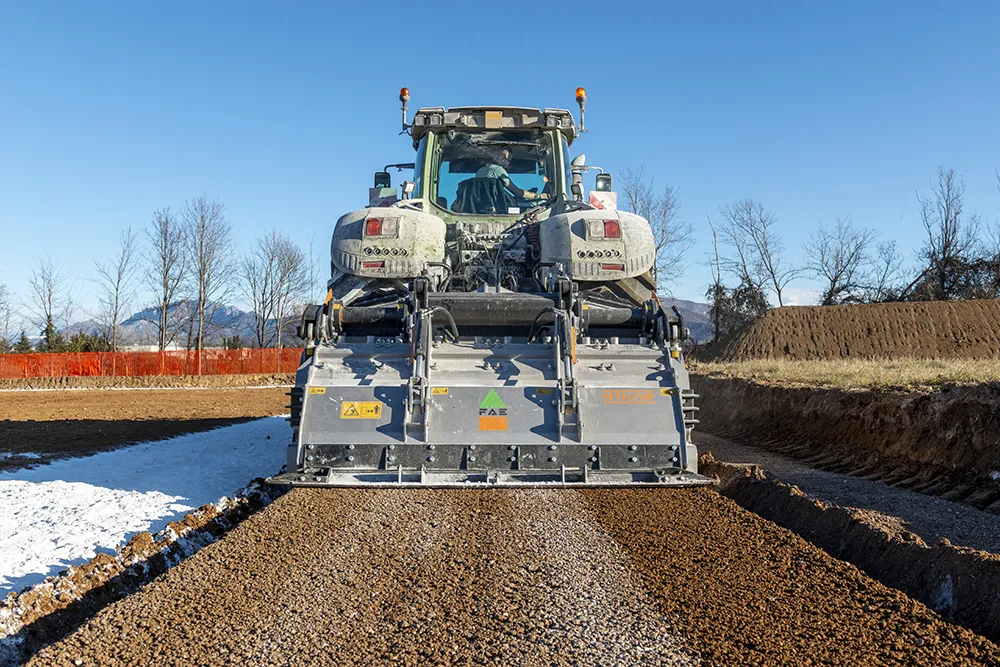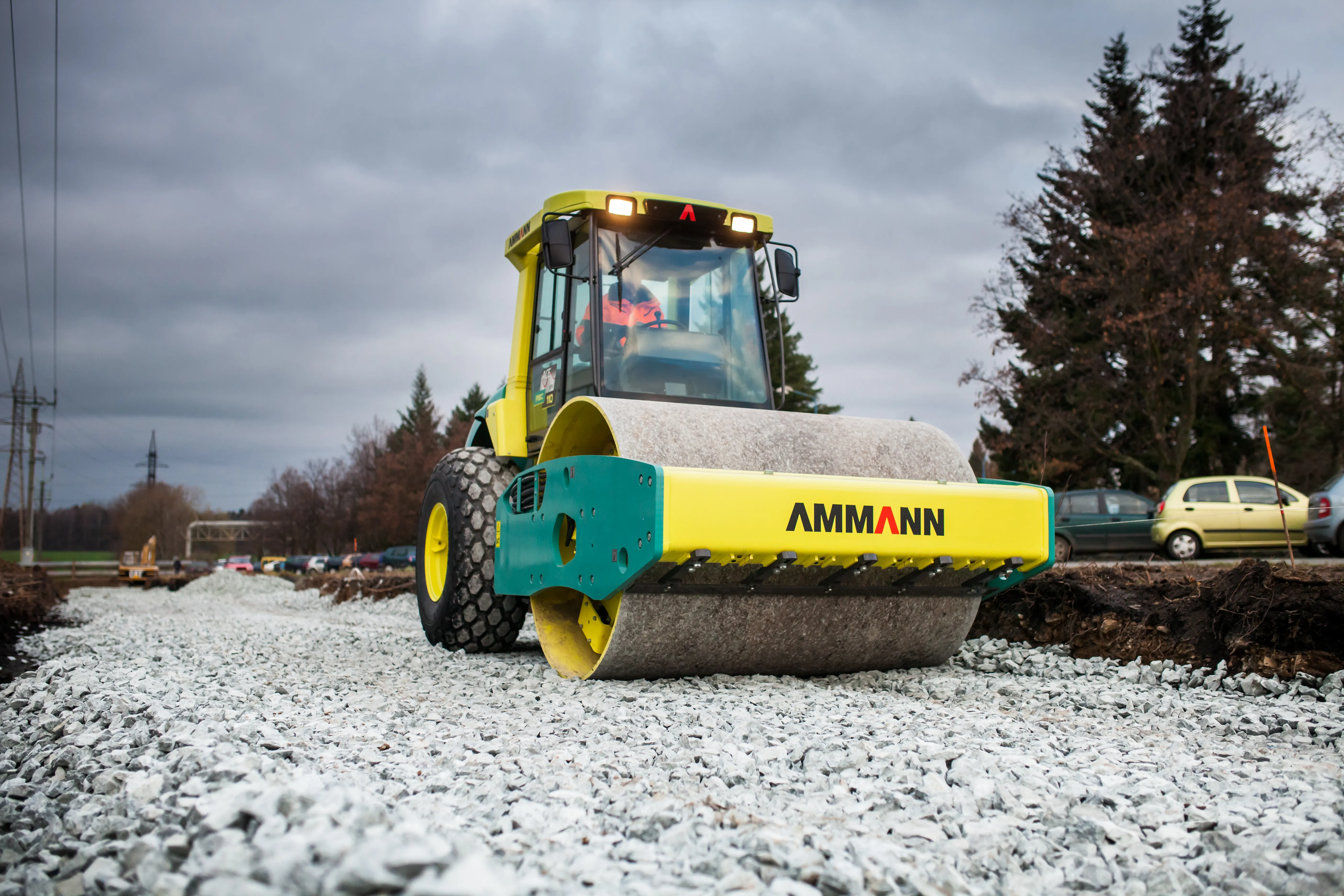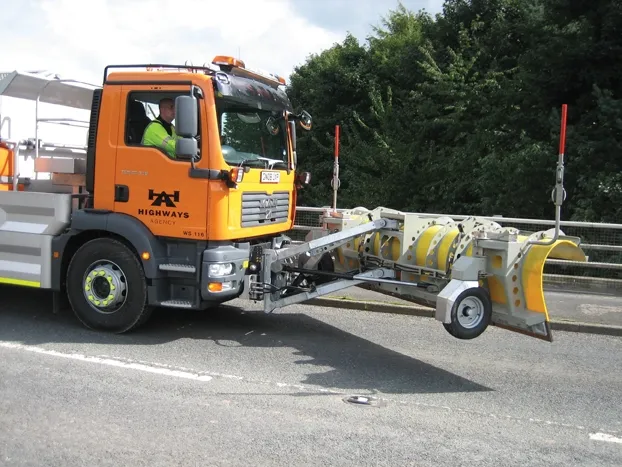Contractors now have a wider array of stabilisation tools to choose from, with several new units being announced at the Intermat exhibition in Paris.
February 29, 2012
Read time: 4 mins
Contractors now have a wider array of stabilisation tools to choose from, with several new units being announced at the 242 INTERMAT exhibition in Paris. Both the family-owned 217 Fayat and 2395 Wirtgen Groups are renewing their focus on road building solutions with the introduction of several new stabilisation machines, while French firm Global Consult has also entered this market.
From Fayat's172 Bomag business comes a new range of ancillary equipment for stabilising weak soils. The firm says it is building on its existing line-up of self-propelled soil stabilisers and recyclers with additional towed units for use with tractors, while the firm is also introducing binding agent spreaders. With the new machines, BOMAG now has a five model range of additive spreaders for lime, cement or other binding agents and these are designed to prepare unstable soils. The capacities of these new units range from 3.2-19m3. The spreaders are available as attached, towed and mounted models for use with HGVs. For the more basic versions of the machines, precise, progressive dosing and distribution of the binding agent is claimed due to simple and robust design. The larger spreaders can also be fitted with electronic rotary valves as an option and this system automatically adjusts material distribution to suit the travel speed.
In addition, two new stabiliser units further broaden the BOMAG range and the new BSF2200 and BSF2500 models are available. These units have working widths of 2.2m and 2.5m respectively, offer working depths of up to 40mm and are said to ensure uniform mixing. Towing the units with a tractor rated at 150kW or more should provide sufficient pulling power for use even in difficult terrain. Compact yet productive, these stabilisers are said to cut costs on small-medium sized projects and come with features including standard three-point link attachments, ease of transport and low investment costs.
Global Consult says it is broadening its range for soil remediation machines with the launch of the trailer and chassis-mounted spreaders. The range includes the Alpha trailer and chassis-mounted spreaders,199 Delta self-propelled spreaders and Omega soil stabilisers.
For the Alpha and Delta spreaders, Global has two binder transfer systems using either stainless steel conveyors or screws. Products can be evenly distributed in four adjacent sections and the machines offer precise flow rates of 3-70kg/m2 that are adjusted to travel speed. The towed Alpha spreaders are available in capacities of 8.5-16m2.
Meanwhile there are two models of Delta self-propelled spreaders, a 12m3 machine on two axles and a three-axle18m3 model. Drive is allowing variable speeds from 0-40km/h. All of Global's self-powered machines are driven using196 Cummins diesel engines and the company has plans to further develop the range with the introduction of a 24tonne Omega articulated soil stabiliser soon.
At Wirtgen, the two new tractor-towed stabilisers are said to offer high performance in soil improvement and soil consolidation projects. Increased efficiency and operator comfort are claimed for these second generation machines, which are said to be easier to operate and maintain. The new WS220 and WS250 units are designed to be towed by a tractor and both are said to offer a working depth of 500 mm. The WS220 has a working width of 2.15m while the larger WS250 model has a working width of 2.5m.
The stabilisers feature proven, mechanically driven milling and mixing rotors. This is said to combine high efficiency with low maintenance requirements. Material flow in the mixing chamber has been optimised with a new design that allows the rear opening to increase in size, boosting material throughput. The redesigned mixing chambers are also said to help reduce fuel consumption in the tractor.
Two new features are said to produce an even, smooth and continuous surface texture regardless of the working depth. The new stabilisers are fitted with a mechanically adjustable levelling blade in the bottom part of the drum plate with setting angles of 60-80º. The blades can be set to a steep angle when working at the maximum milling depth of 500mm, while at lower working depths of 200mm the levelling blade can be set to a flat angle.
From Fayat's
In addition, two new stabiliser units further broaden the BOMAG range and the new BSF2200 and BSF2500 models are available. These units have working widths of 2.2m and 2.5m respectively, offer working depths of up to 40mm and are said to ensure uniform mixing. Towing the units with a tractor rated at 150kW or more should provide sufficient pulling power for use even in difficult terrain. Compact yet productive, these stabilisers are said to cut costs on small-medium sized projects and come with features including standard three-point link attachments, ease of transport and low investment costs.
Global Consult says it is broadening its range for soil remediation machines with the launch of the trailer and chassis-mounted spreaders. The range includes the Alpha trailer and chassis-mounted spreaders,
For the Alpha and Delta spreaders, Global has two binder transfer systems using either stainless steel conveyors or screws. Products can be evenly distributed in four adjacent sections and the machines offer precise flow rates of 3-70kg/m2 that are adjusted to travel speed. The towed Alpha spreaders are available in capacities of 8.5-16m2.
Meanwhile there are two models of Delta self-propelled spreaders, a 12m3 machine on two axles and a three-axle18m3 model. Drive is allowing variable speeds from 0-40km/h. All of Global's self-powered machines are driven using
At Wirtgen, the two new tractor-towed stabilisers are said to offer high performance in soil improvement and soil consolidation projects. Increased efficiency and operator comfort are claimed for these second generation machines, which are said to be easier to operate and maintain. The new WS220 and WS250 units are designed to be towed by a tractor and both are said to offer a working depth of 500 mm. The WS220 has a working width of 2.15m while the larger WS250 model has a working width of 2.5m.
The stabilisers feature proven, mechanically driven milling and mixing rotors. This is said to combine high efficiency with low maintenance requirements. Material flow in the mixing chamber has been optimised with a new design that allows the rear opening to increase in size, boosting material throughput. The redesigned mixing chambers are also said to help reduce fuel consumption in the tractor.
Two new features are said to produce an even, smooth and continuous surface texture regardless of the working depth. The new stabilisers are fitted with a mechanically adjustable levelling blade in the bottom part of the drum plate with setting angles of 60-80º. The blades can be set to a steep angle when working at the maximum milling depth of 500mm, while at lower working depths of 200mm the levelling blade can be set to a flat angle.









